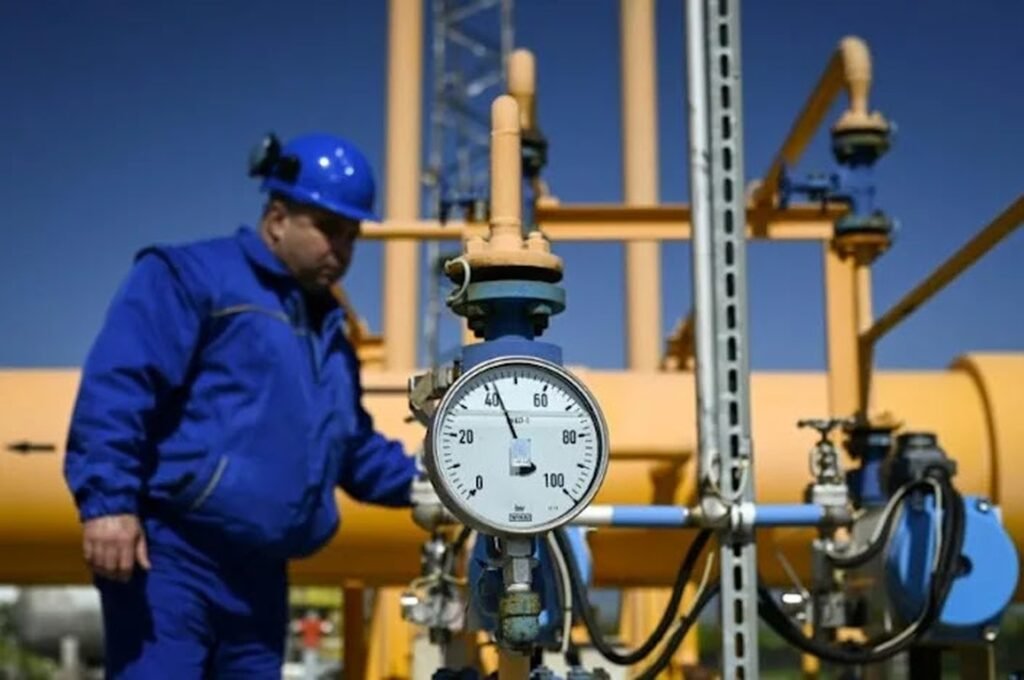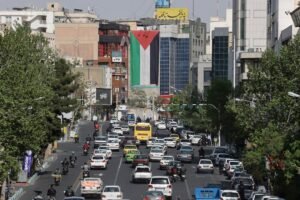
Bulgaria is in trouble because Russia cut off its gas supply 0
(Dan Tri) – Russia’s suspension of gas supplies to Bulgaria last week caused large and small companies in the country to compete for supplies because of concerns about delivery cuts and rising prices.
Bulgaria has imported more than 90% of its gas supply from Russia for decades (Photo: AFP).
Valery Krastev, owner of a bread factory in the northern Bulgarian town of Montana, said in a worried voice: `We are on the brink. We will have to raise prices even more. Everyone
The Bulgarian government insists there are `alternatives` to Russian gas and will not reduce supplies to consumers, calling Moscow’s move to stop deliveries `an act of blackmail`.
Russia has required gas buyers to pay in rubles instead of USD or EUR, a move that risks violating sanctions that the West has imposed on Russia.
Poland and Bulgaria have resolutely refused the gas payment conditions set by Russia.
Since then, Bulgaria’s neighbors have intervened, increasing deliveries to the country, but the problem is that Bulgaria has imported more than 90% of its gas from Russia over the past several decades. But the lack of a long-term solution to
Many people living in the capital Sofia still remember January 2009 when a Russian-Ukrainian gas exploration company cut off deliveries to Europe for days on end, leaving their homes unheated all winter.
So far, supplies to Sofia’s Toplofikacia utility have not been interrupted, according to city head Alexander Alexandrov.
`But we cannot continue operating for more than 24 hours if the gas supply is completely cut off,` Mr. Alexandrov told AFP, adding that switching back to fuel oil would have `an impact.`
Energy Minister Alexander Nikolov confirmed that Bulgaria had to pay an additional 10% to ensure it received enough gas for May through an intermediary gas trading company.
`I can’t believe someone is trying to convince us that this is good for us. No, it’s not,` said Konstantin Stamenov, head of the Federation of Industrial Energy Consumers (BFIEC) and executive director of the
To keep prices down and ensure energy supplies, the government has vowed to diversify suppliers.
This would allow state gas operator Bulgargaz to negotiate an increase in existing contractual supply with Azerbaijan by 1.0 bcm annually and to receive more gas from liquefied natural gas terminals (
Prime Minister Kiril Petkov also said that the government is negotiating to buy LNG from the US and Egypt.
`We have a huge opportunity to achieve a stable diversification of gas supplies,` energy expert Martin Vladimirov from the Sofia-based Center for Democratic Studies told AFP.
However, economist Georgy Angelov from Open Society, USA, warned that `this possibility will not come true overnight`.
Currently, all operations are still going on normally at the Bulgartransgaz company’s gas compressor station near Ihtiman, where Russian gas is still circulating through yellow pipes.
But Bulgargaz, Bulgaria’s national gas operator, is no longer allowed to use any part of this gas flow, because most of it goes to Greece and North Macedonia.






